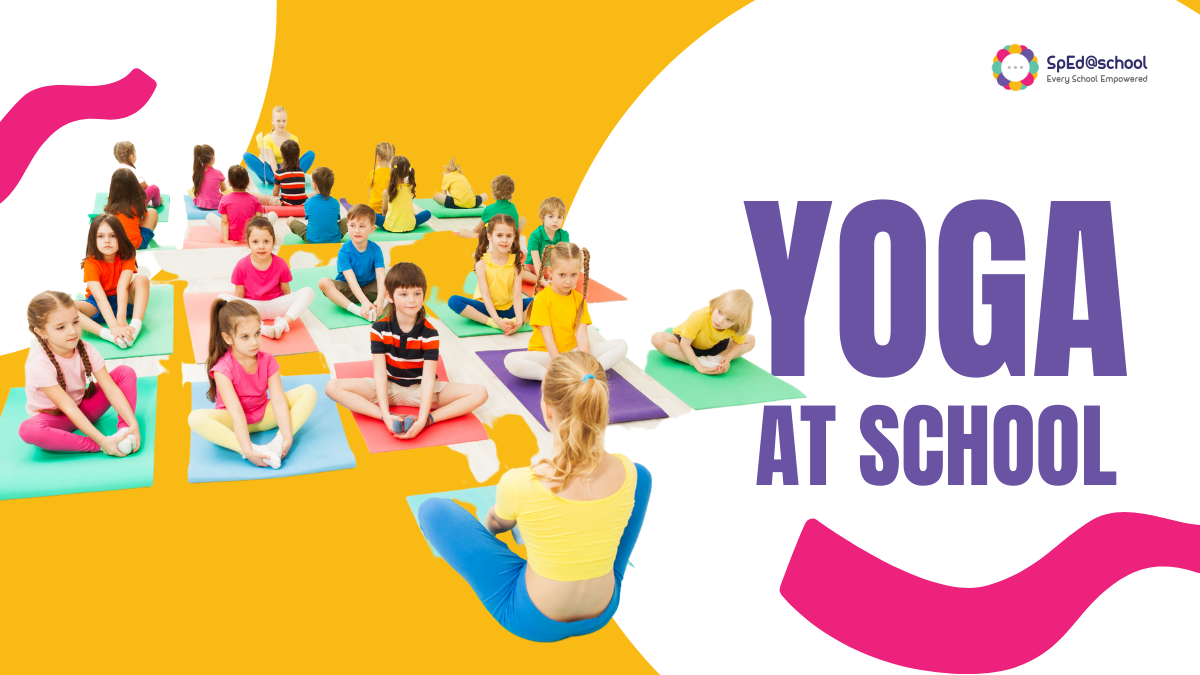Yoga has become increasingly recognized as a valuable practice for individuals of all ages, including children and adolescents. Integrating yoga into school curricula offers numerous benefits that enhance students’ overall well-being and contribute to their academic success. In this article, we will explore the importance of yoga practice at school and how it positively impacts students’ physical health, mental well-being, and academic performance.
First and foremost, incorporating yoga into school routines promotes physical health and fitness. Regular yoga practice helps children improve their flexibility, strength, and coordination. The various yoga postures and movements engage different muscle groups, supporting the development of strong and balanced bodies. Furthermore, practicing yoga at school encourages students to be physically active, combatting sedentary behavior and promoting a healthy lifestyle. By instilling positive exercise habits from an early age, schools contribute to the long-term health and well-being of their students.
Beyond physical health, yoga practice at school also has a significant impact on students’ mental well-being. Yoga incorporates mindfulness and relaxation techniques that help children develop self-awareness and emotional regulation skills. By focusing on the present moment and engaging in deep breathing exercises, students learn to reduce stress, anxiety, and negative emotions. Regular practice of yoga can improve students’ overall mental resilience and promote a positive mindset. This, in turn, creates a conducive learning environment and enhances students’ ability to concentrate, retain information, and engage effectively in their academic pursuits.
Moreover, yoga practice at school fosters a sense of community and connection among students. Group yoga sessions provide an opportunity for students to interact with their peers in a positive and non-competitive environment. Practicing yoga together cultivates a supportive and inclusive atmosphere, strengthening social bonds and promoting empathy and understanding among students. This sense of community contributes to a positive school culture and enhances students’ overall well-being.
Another significant benefit of incorporating yoga into school routines is its impact on students’ academic performance. Research has shown that regular yoga practice can improve cognitive functions, including attention, memory, and problem-solving abilities. By reducing stress and promoting mental clarity, yoga helps students focus better in the classroom, leading to increased productivity and academic success. Furthermore, the relaxation techniques practiced in yoga can improve sleep quality, which is crucial for students’ learning and memory consolidation.
Implementing yoga practice at school also supports students’ holistic development. The practice of yoga encourages self-discipline, patience, and self-reflection. Students learn to set goals, work towards them, and celebrate their achievements. These skills are transferable to various areas of their lives, including academics, personal relationships, and future careers. By nurturing students’ character development, schools contribute to their overall growth and equip them with valuable life skills.
To ensure the effectiveness and safety of yoga practice at school, it is essential to have trained instructors who specialize in teaching yoga to children and adolescents. These instructors can design age-appropriate yoga sessions that cater to the unique needs and abilities of students. They can also adapt the practice for students with diverse physical or cognitive challenges, ensuring inclusivity and accessibility for all.
In conclusion, integrating yoga practice into school routines offers a range of benefits that enhance students’ overall well-being and academic success. Yoga promotes physical health, mental well-being, and cognitive functions. It fosters a sense of community, supports holistic development, and equips students with valuable life skills. By embracing yoga as a regular practice at school, educators and administrators invest in the long-term health, happiness, and academic achievements of their students.














